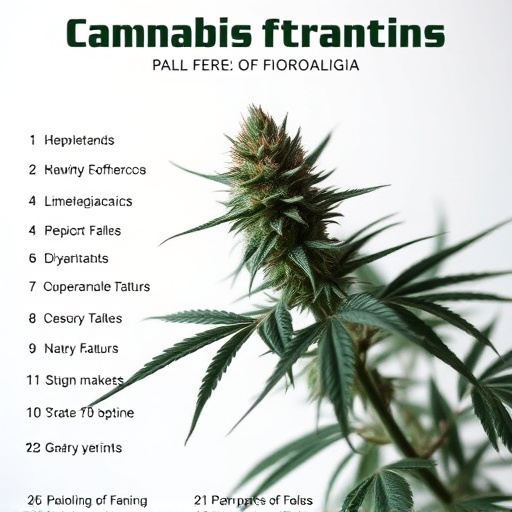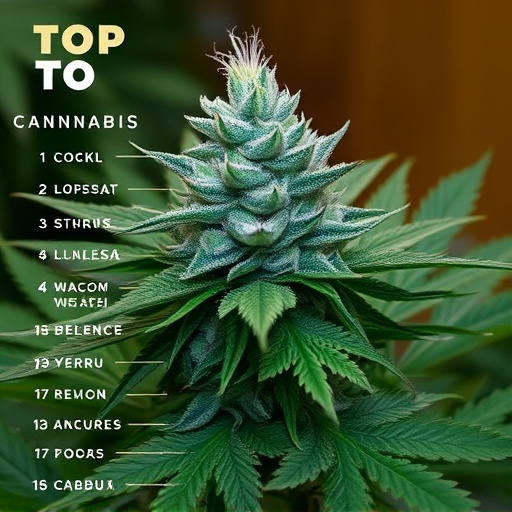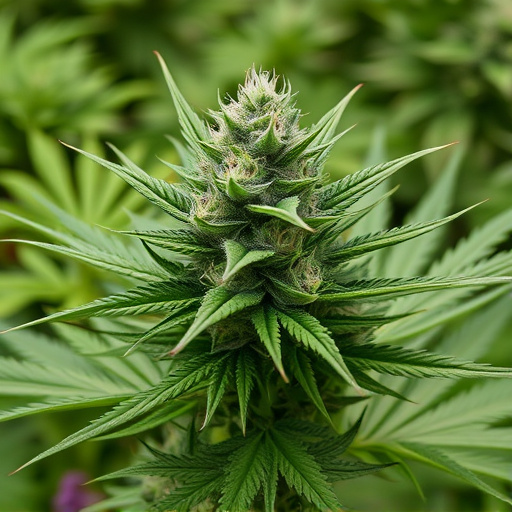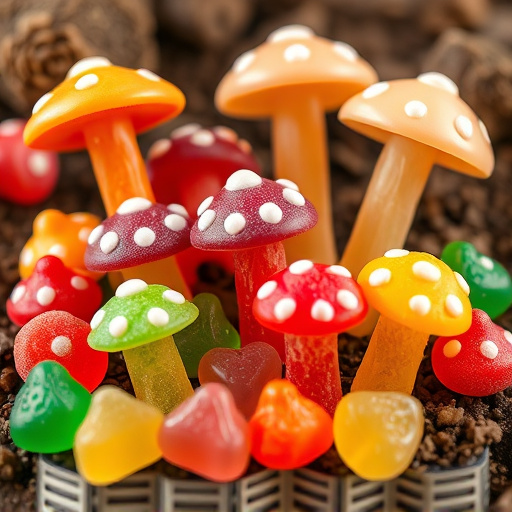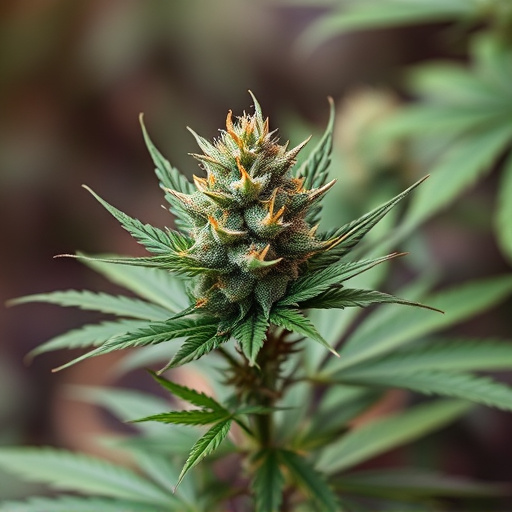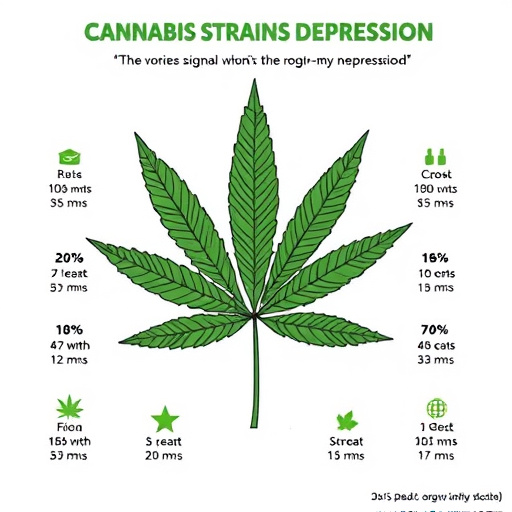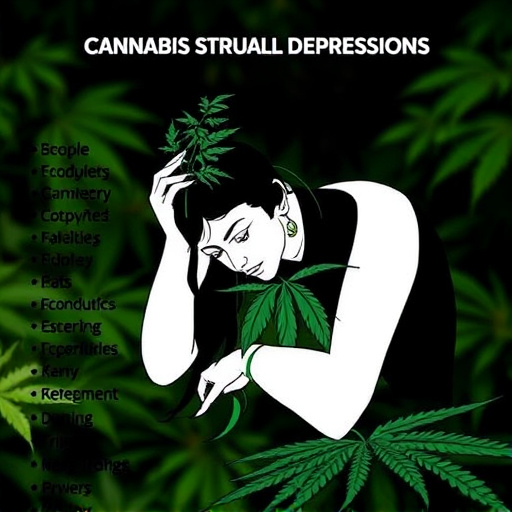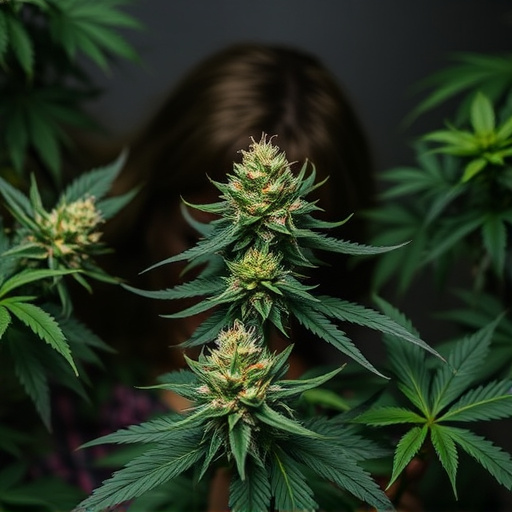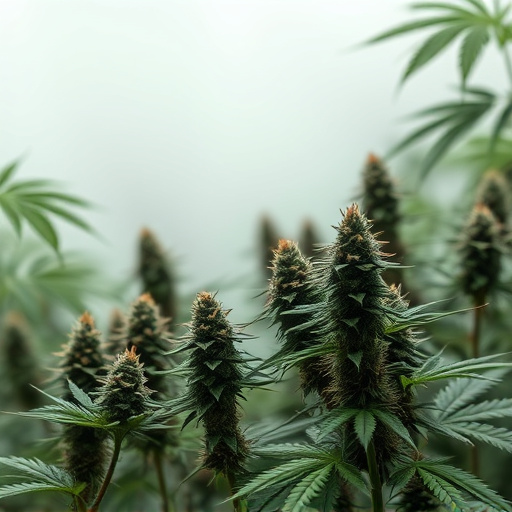Cannabis strains can significantly impact human appetite due to compounds like THC and CBD, with THC known to stimulate hunger. This is particularly beneficial for managing depression, as changes in appetite are common symptoms. Understanding the varying levels of THC and CBD in different strains allows users to select suitable options, addressing both hunger and mood-related issues. High CBD strains offer anti-depressant benefits without psychoactive effects, while balanced or high THC strains can enhance motivation and indirectly aid appetite stimulation. Incorporating these strains with dietary and lifestyle adjustments provides a holistic approach to managing depression and related eating difficulties.
Cannabis has long been known for its ability to stimulate appetite, a phenomenon often referred to as “munchies.” Beyond casual consumption, understanding this effect is crucial for medical users, especially those managing conditions like depression and anorexia. This article delves into the science behind cannabis-induced hunger, exploring key compounds and receptors responsible. We also examine specific cannabis strains known for their potential in treating depression and stimulating appetite, offering insights for both recreational and medicinal users.
- Understanding Cannabis and its Effects on Appetite
- The Science Behind Cannabis-Induced Hunger: Key Compounds and Receptors
- Exploring Cannabis Strains for Depression and Appetite Stimulation
Understanding Cannabis and its Effects on Appetite
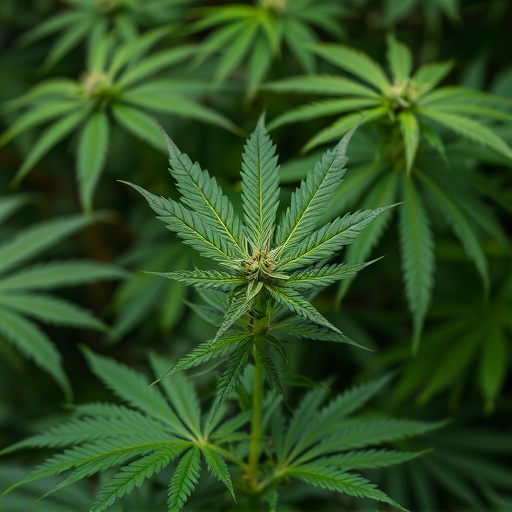
Cannabis, with its diverse compounds and terpenes, has long been known to influence human appetite, often evoking a strong craving for food, especially when consumed in certain strains. Understanding this effect is crucial, particularly for those seeking cannabis strains for depression or other mental health conditions, where changes in appetite are common symptoms.
Research suggests that tetrahydrocannabinol (THC), one of the primary psychoactive compounds in cannabis, plays a significant role in stimulating hunger. THC interacts with our endocannabinoid system, which regulates various physiological processes, including eating and metabolism. When consumed, it can trigger certain receptors, leading to increased hunger pangs and cravings, often described as the “munchies.” This effect is not universal, however; different cannabis strains have varying levels of THC and other compounds like cannabidiol (CBD), which may impact appetite differently. Exploring these variations can help individuals find suitable cannabis strains for their specific needs, whether it’s managing depression or simply satisfying an enhanced appetite.
The Science Behind Cannabis-Induced Hunger: Key Compounds and Receptors
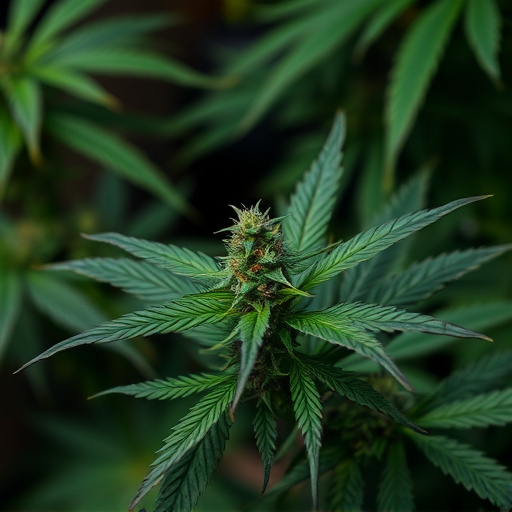
The Science Behind Cannabis-Induced Hunger: Key Compounds and Receptors
Cannabis flower’s ability to stimulate appetite is a well-documented phenomenon, particularly among individuals seeking relief from conditions like depression or anorexia. This effect isn’t merely subjective; it’s backed by scientific research that delves into the complex interaction between cannabis compounds and our bodies’ receptors. The primary culprits are tetrahydrocannabinol (THC) and cannabidiol (CBD), two prominent cannabinoids found in the plant. THC, known for its psychoactive properties, binds to cannabinoid receptors in the brain, specifically CB1 receptors, which play a significant role in regulating appetite. This binding triggers a cascade of chemical reactions that stimulate hunger and can lead to increased food intake.
While THC is often associated with this effect, CBD also contributes through indirect means. Unlike THC, CBD doesn’t bind directly to CB1 receptors but instead influences them indirectly and modulates the overall response. Research suggests that CBD can interact with other receptors involved in appetite regulation, such as serotonin and opioid receptors, further enhancing cannabis strains for depression therapy by addressing both hunger and mood-related symptoms.
Exploring Cannabis Strains for Depression and Appetite Stimulation
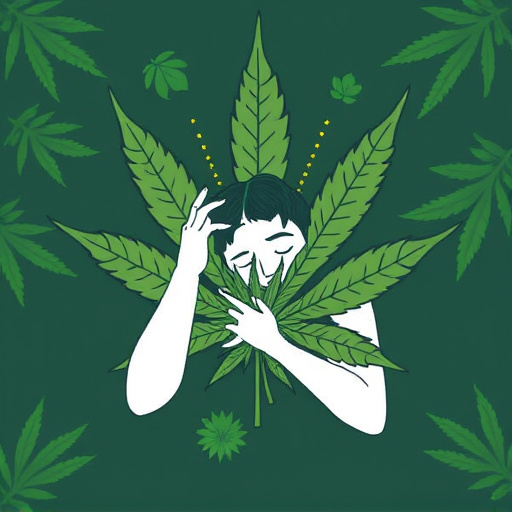
Cannabis has long been used to alleviate various symptoms, and one of its most notable effects is its ability to stimulate appetite. For individuals struggling with depression or other conditions that cause loss of appetite, exploring cannabis strains known for their appetite-enhancing properties can be a game-changer. Different cannabis strains have unique chemical compositions, including varying levels of THC (tetrahydrocannabinol) and CBD (cannabidiol), which can significantly impact the user’s experience.
Specific cannabis strains for depression often focus on balancing these compounds to promote well-being. High CBD strains are known for their potential anti-depressant effects without the intense psychoactive properties of THC, making them a safer option for those looking to manage symptoms discreetly. On the other hand, balanced or high THC strains can induce euphoria and increase motivation, indirectly helping to stimulate appetite. Combining these strains with a healthy diet and lifestyle changes can offer a comprehensive approach to managing depression and related eating issues.
Cannabis’ effect on increasing appetite is well documented, with scientific research uncovering the role of key compounds like THC and endocannabinoids in activating hunger receptors. This phenomenon offers potential therapeutic benefits, particularly for individuals dealing with depression and appetite suppression. Exploring specific cannabis strains known to stimulate appetite can provide a natural approach to managing these conditions, offering a promising alternative for those seeking relief without conventional medications.

